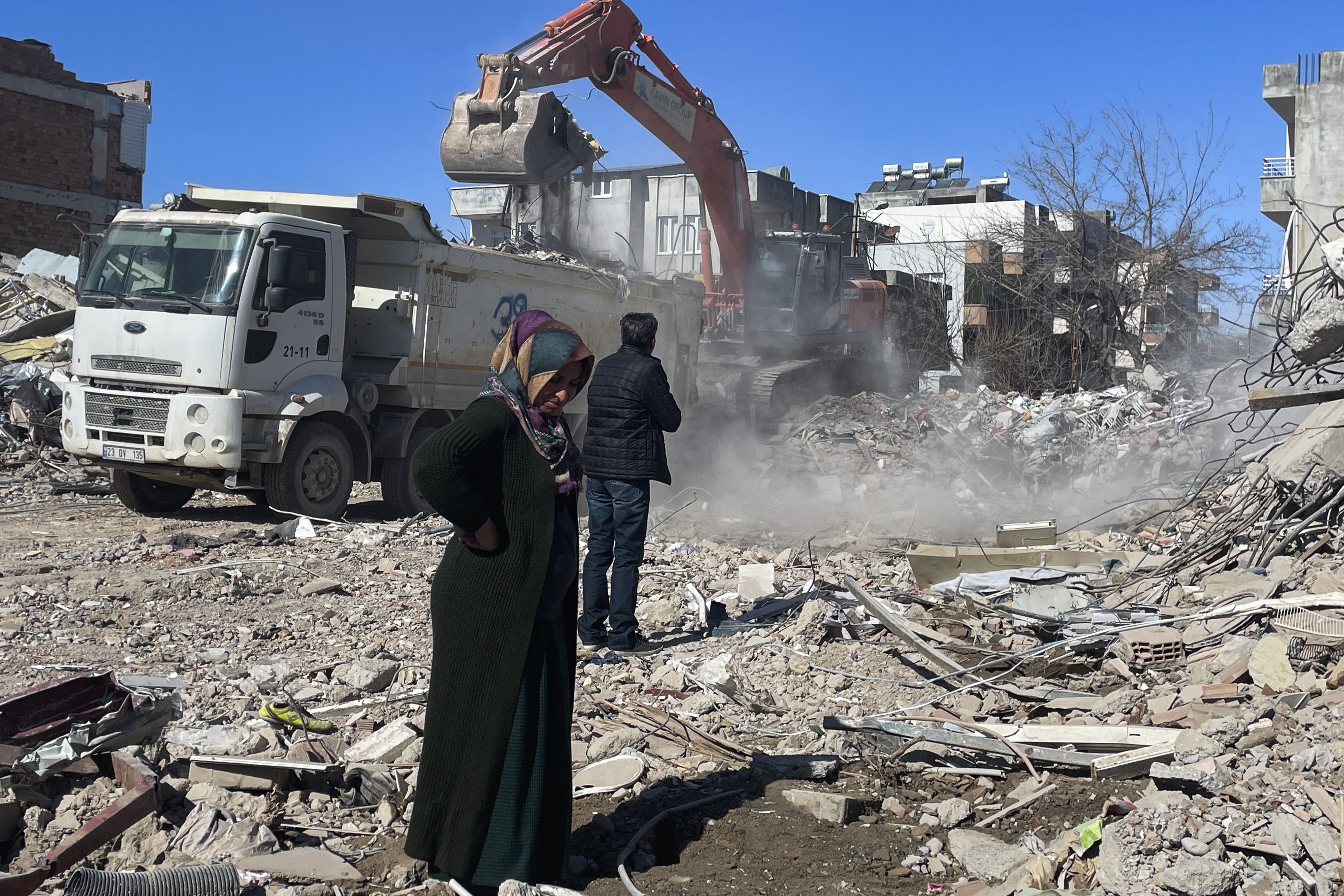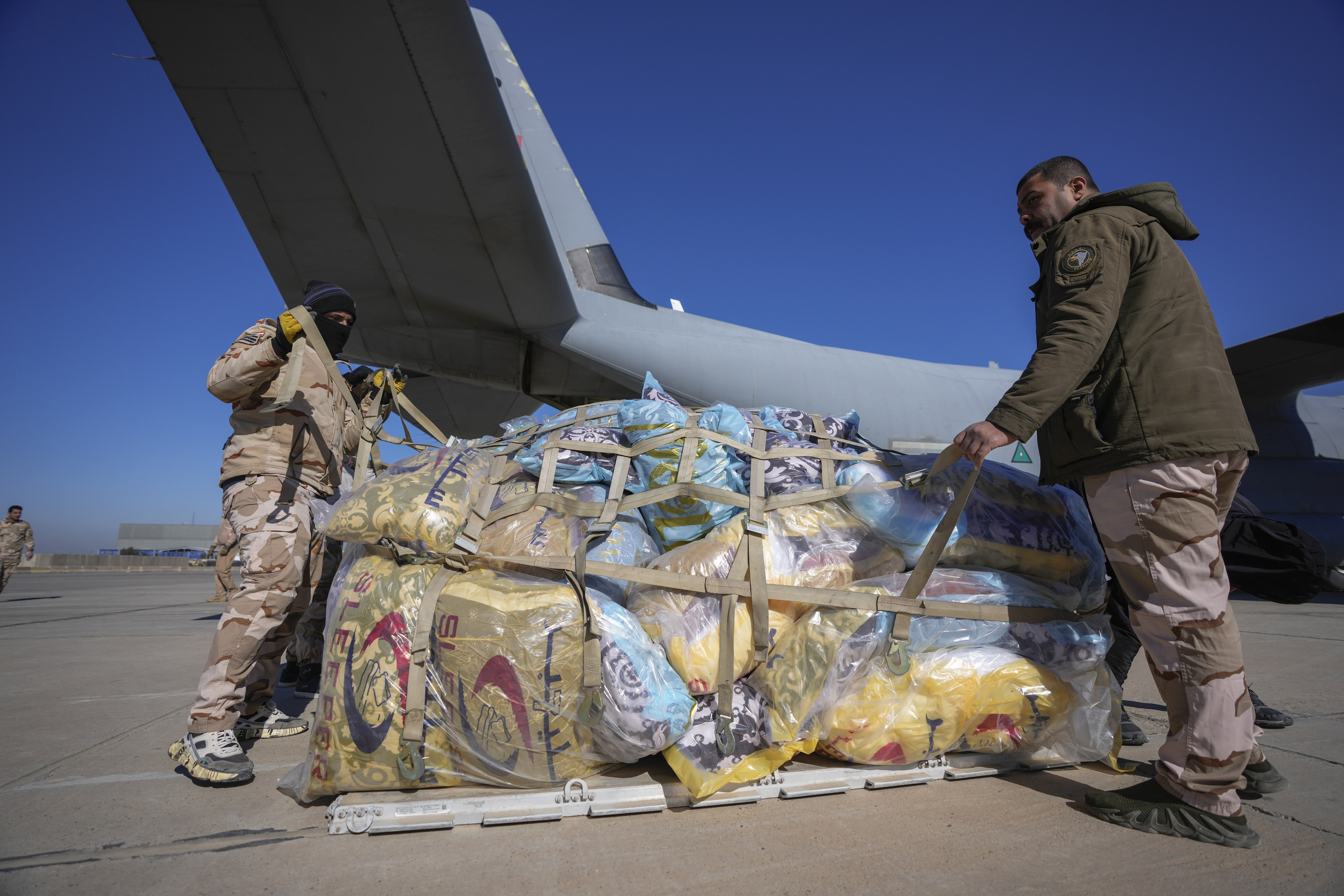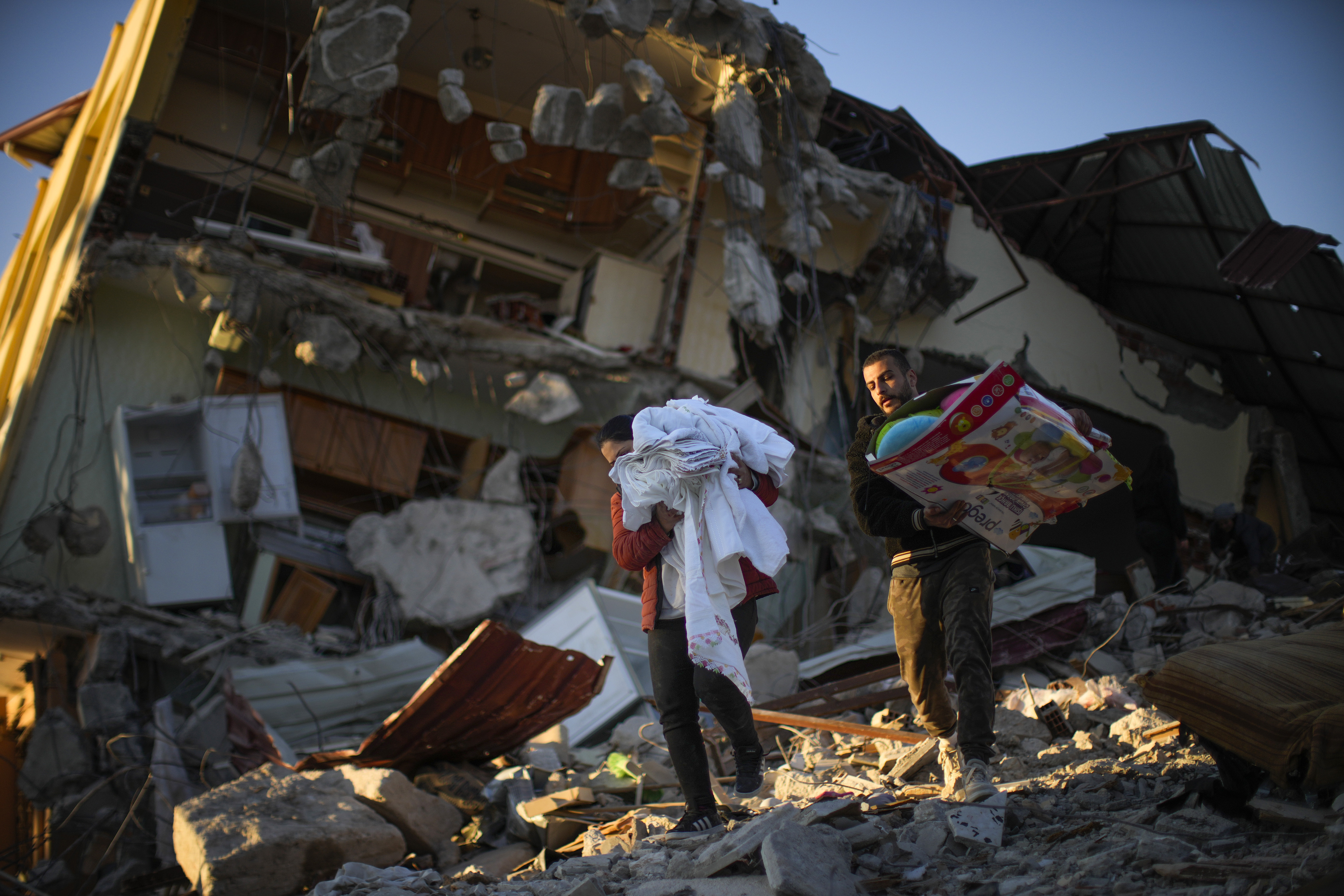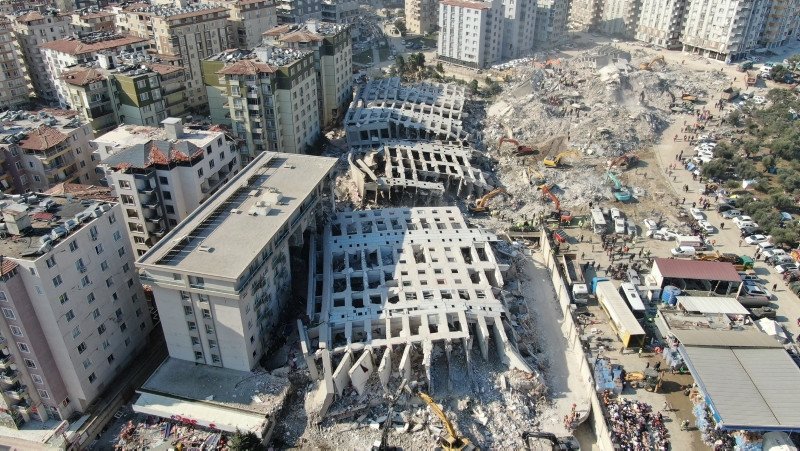
At least 46,000 people have died in the quake in Turkey and Syria, and the toll is expected to rise, with some 264,000 apartments in Turkey destroyed and many people still missing as rescuers look for signs of life under the rubble.
As Turkey struggles to deal with the worst disaster in its modern history, concern is growing for the victims of the tragedy in Syria as the World Food Program (WFP) calls on authorities in the northwest to stop blocking access to the region in a bid to help thousands people affected by earthquakes.
Twelve days after the earthquake, workers from Kyrgyzstan managed to rescue a Syrian family of five from the ruins of a building in the southern Turkish city of Antakya (Antioch).
Three people, including a child, were recovered alive. The mother and father survived, but the child later died of dehydration, rescuers said. His older sister and twin brother did not survive.
“Today, when we were digging, we heard voices. When we find living people, we are always happy,” Atay Osmanov, a member of the rescue team, told Reuters.
Ten ambulances were waiting on a nearby road, which was closed to rescue traffic.

Workers asked everyone to be quiet as crews climbed higher to the top of the rubble of the building where the family was found to listen for other noises with an electronic detector.
Take a deep breath if you hear my voice
As the rescue work continued, one of the workers shouted into the ruins, “Take a deep breath if you hear my voice.”
Workers later stopped searching as excavators arrived to clear the rubble.
Turkey’s quake death toll has reached 40,642, while neighboring Syria has killed at least 5,800, a number that has remained unchanged for days.
Speaking to Reuters on the sidelines of the Munich Security Conference, WFP director David Beasley said the governments of Syria and Turkey are cooperating very well, but the agency’s operations are hampered in northwestern Syria.
The agency said last week that supplies there were running out and called for more border crossings to open from Turkey.

“The problems we are facing are related to operations in northwest Syria, where the authorities in northwest Syria are not giving us the access we need,” Beasley said, adding that “this creates a bottleneck in our operations. This needs to be fixed immediately.”
“Time is running out and we are running out of money. Our business needs about $50 million a month just to respond to an earthquake, so if Europe does not want a new wave of refugees, we need the support we need,” Beasley added.
In Syria, already shattered by more than a decade of civil war, the highest number of deaths have been recorded in the northwestern part of the country.
The area is under the control of rebels who are fighting forces loyal to Bashar al-Assad, making it difficult to help the people.
Thousands of Syrians who took refuge in Turkey from the war have returned to their homes in the war zone – at least for now.
healthcare
While many international rescue teams left the huge earthquake-hit area in Turkey, Turkish brigades were still searching inside the collapsed buildings in the hope of finding more survivors. According to experts, most rescue operations take place in the first 24 hours after an earthquake.

Medical and paramedical personnel, as well as experts, have expressed concern about the spread of infection in the region, where thousands of buildings collapsed last week, destroying the sanitary infrastructure.
Turkish Health Minister Fahrettin Koca said today that despite the rise in intestinal and upper respiratory tract infections, their number does not pose a serious threat to public health, adding that measures have been taken to monitor and prevent diseases.
“Now our priority is to fight conditions that can threaten public health and prevent infectious diseases,” Koca said at a press conference in the southern province of Hatay.
Aid groups say the survivors will need help for months as much of the critical infrastructure has been destroyed.
Anger grows
Neither Turkey nor Syria have reported how many people have gone missing since the quake.
There is growing anger among families still waiting to meet relatives in Turkey over what they see as corrupt building practices and serious urban development problems that have led to the destruction of thousands of homes and businesses.
One such building was the Rhonesian residence, which collapsed in Antakia (Antioch), killing thousands of people.

It was supposed to be earthquake resistant, but you can see the results, said Hamza Alpaslan, 47, whose brother lived in the complex. He’s in a terrible state. There was no concrete or ordinary iron left in it. This is real hell.
Turkey has vowed to open an investigation to find those allegedly responsible for the collapse of the building and has ordered the arrest of at least 100 suspects, including contractors.
Source: APE-MPE, Reuters.
Source: Kathimerini
Anna White is a journalist at 247 News Reel, where she writes on world news and current events. She is known for her insightful analysis and compelling storytelling. Anna’s articles have been widely read and shared, earning her a reputation as a talented and respected journalist. She delivers in-depth and accurate understanding of the world’s most pressing issues.